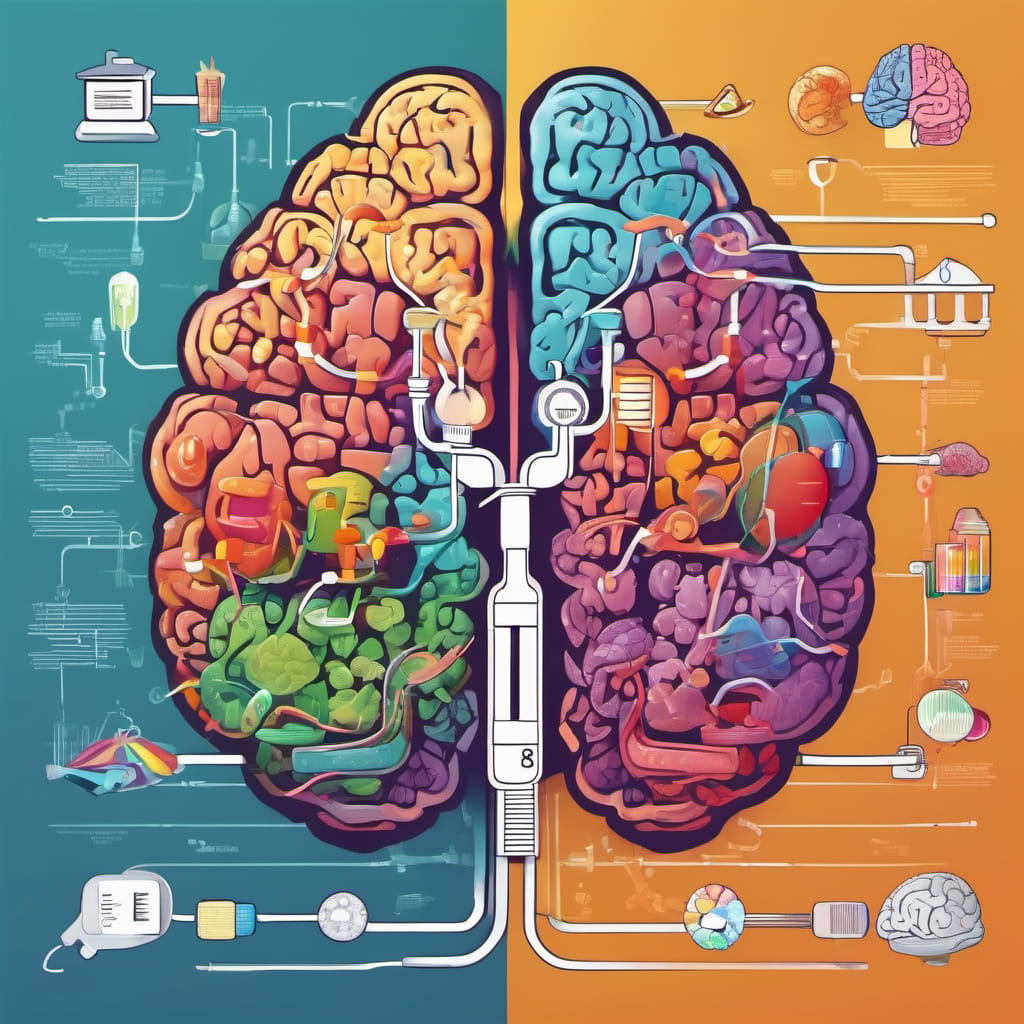The Silent Symphony Within: Your Brain's Dance with Sodium
Unveiling the Hidden Culprits and Practical Tips to Reduce Your Sodium Intake

The Silent Symphony: How Your Brain Orchestrates the Dance of Sodium
Imagine a silent orchestra nestled within your brain, constantly monitoring and fine-tuning a vital performance – the delicate dance of sodium in your blood. Sodium, a seemingly simple element, plays a crucial role in regulating blood pressure, a function critical for overall health. This captivating story explores how your brain meticulously regulates sodium levels, highlighting the potential consequences of dietary choices and the importance of mindful consumption.
Most of us are familiar with sodium's other name – salt. We sprinkle it on fries, add it to pasta water, and use it to enhance flavors in cooking. Yet, many people are unaware of the intricate biological symphony behind sodium balance.
A Leaky Barrier for a Vital Purpose
The human brain is a highly protected fortress, guarded by a barrier that keeps blood components separate from delicate brain tissue. Interestingly, this blood-brain barrier has strategic "leaks" near specialized areas called circumventricular organs. These "leaky" regions are designed to allow the brain to directly sense certain elements in the blood, including sodium.
Think of these circumventricular organs as tiny taste buds for your blood. They constantly monitor the sodium concentration and relay this information to other brain regions. This information triggers a cascade of reactions, influencing functions like:
- Pulse rate: When sodium levels drop, your heart rate may slow down to conserve blood flow.
- Sympathetic nervous system activity: This system plays a vital role in your "fight-or-flight" response. Changes in sodium can affect your body's alertness and responsiveness.
- Blood vessel tone: The tightness or relaxation of your blood vessels influences blood pressure.
- Kidney function: Your kidneys act as filtration units, removing excess sodium through urine. By adjusting the amount of sodium excretion, your brain maintains a healthy balance.
This intricate communication system ensures that sodium levels stay within a narrow range, crucial for maintaining healthy blood pressure – a silent orchestra conducting a vital performance.
The Salt Conundrum: How Much is Too Much?
While the body strives to maintain sodium balance, our dietary choices can present a challenge. Despite this meticulous internal regulation, even small changes in our sodium intake can cause fluctuations in blood sodium levels. When sodium intake decreases, the body initiates several responses to conserve existing sodium and adjust kidney function to hold onto it.
The American Heart Association recommends no more than 1,500 mg of sodium per day, while the Dietary Guidelines for Americans suggest a limit of 2,300 mg for optimal cardiovascular health. However, the average American consumes significantly more, often exceeding these recommendations.
This excess sodium intake can overburden the body's regulatory system and potentially contribute to elevated blood pressure, a major risk factor for heart disease – the leading cause of death globally.
Beyond the Salt Shaker: Where Does the Sodium Hide?
While the salt shaker might seem like the primary culprit, a surprising statistic reveals that only about 10% of the sodium we consume comes from adding salt during cooking or at the table.
The true culprits lurk in the processed and pre-packaged food we consume:
- Restaurant meals: Restaurants often add significant amounts of salt during preparation to enhance flavor.
- Processed meats: Sausages, hot dogs, and deli meats are notorious for their high sodium content.
- Canned goods: The canning process often incorporates salt as a preservative, leading to higher sodium levels.
- Convenience foods: Frozen dinners, microwavable meals, and instant soups often pack a hidden punch of sodium.
These hidden sources of sodium highlight the importance of mindful food choices. While the solution might seem like simply ditching the salt shaker, the reality is more complex.
The Takeaway: Tuning In to Your Internal Orchestra
Just like a talented conductor guiding their orchestra, your brain tirelessly orchestrates the dance of sodium in your blood. Understanding this intricate process can empower you to make informed dietary choices.
Here are some takeaways to remember:
Be mindful of processed and pre-packaged foods: Read food labels carefully and choose options with lower sodium content. Look for labels that say "low-sodium" or "reduced sodium."
- Embrace home cooking: Preparing meals from scratch allows you to control the amount of salt you add. Explore flavorful alternatives like herbs, spices, and citrus to enhance taste without relying on salt. Consider popular trends like the Mediterranean diet, which emphasizes fresh ingredients and healthy fats, and is naturally lower in sodium.
- Become a Sodium Savvy Shopper: Many grocery stores now offer private label options with lower sodium content. Compare labels and choose the lower sodium option whenever possible.
- Gradually Reduce Added Salt: If you're accustomed to a saltier palate, gradually reduce the amount of salt you gradually reduce the amount of salt you add to your cooking over time. Your taste buds will adapt to the lower sodium levels, and you'll eventually find the natural flavors of your food more enjoyable.
The Final Note: A Symphony of Awareness
By understanding the intricate dance of sodium in your body and the potential consequences of excess intake, you can become an active participant in your own health. The next time you reach for a processed meal, consider the silent symphony taking place within your brain. By making conscious choices about your diet, reducing your reliance on hidden sources of sodium, and gradually adjusting your taste preferences, you can support this incredible internal system and promote healthy blood pressure for a longer, healthier life. Remember, it's not just about eliminating the salt shaker, but about becoming a sodium-savvy consumer and making informed choices for optimal well-being.
About the Creator
suren arju
Hi there! I'm Suren, your startup guide. Entrepreneur, writer, dreamer - I share insights, tips & stories to fuel your startup journey. Ready to explore, learn & win together? Join me & let's redefine how we launch, learn & leap!
Enjoyed the story? Support the Creator.
Subscribe for free to receive all their stories in your feed. You could also pledge your support or give them a one-off tip, letting them know you appreciate their work.





Comments
There are no comments for this story
Be the first to respond and start the conversation.